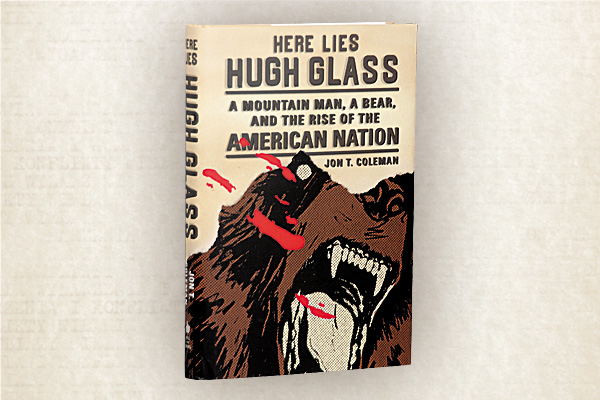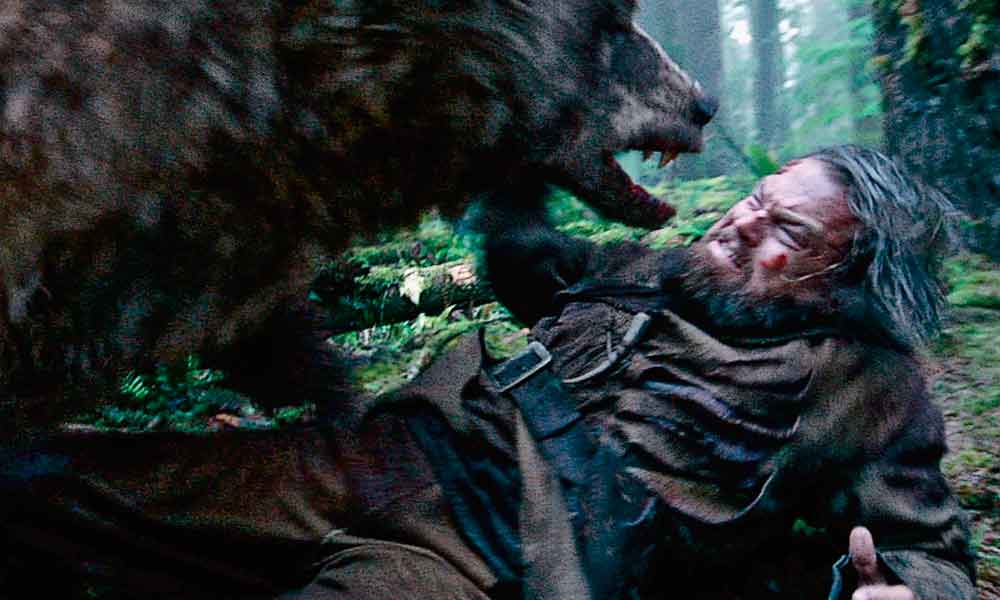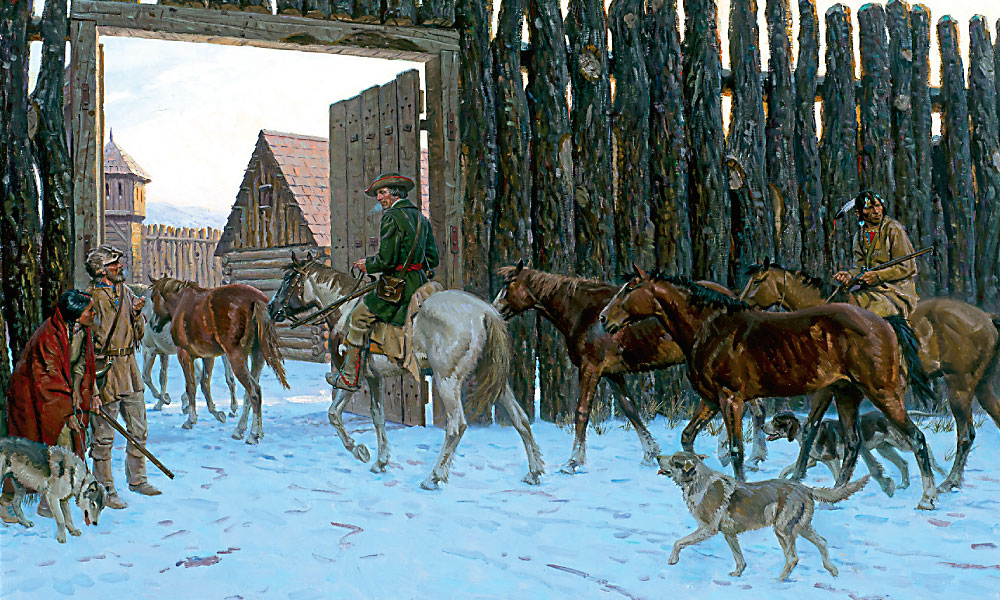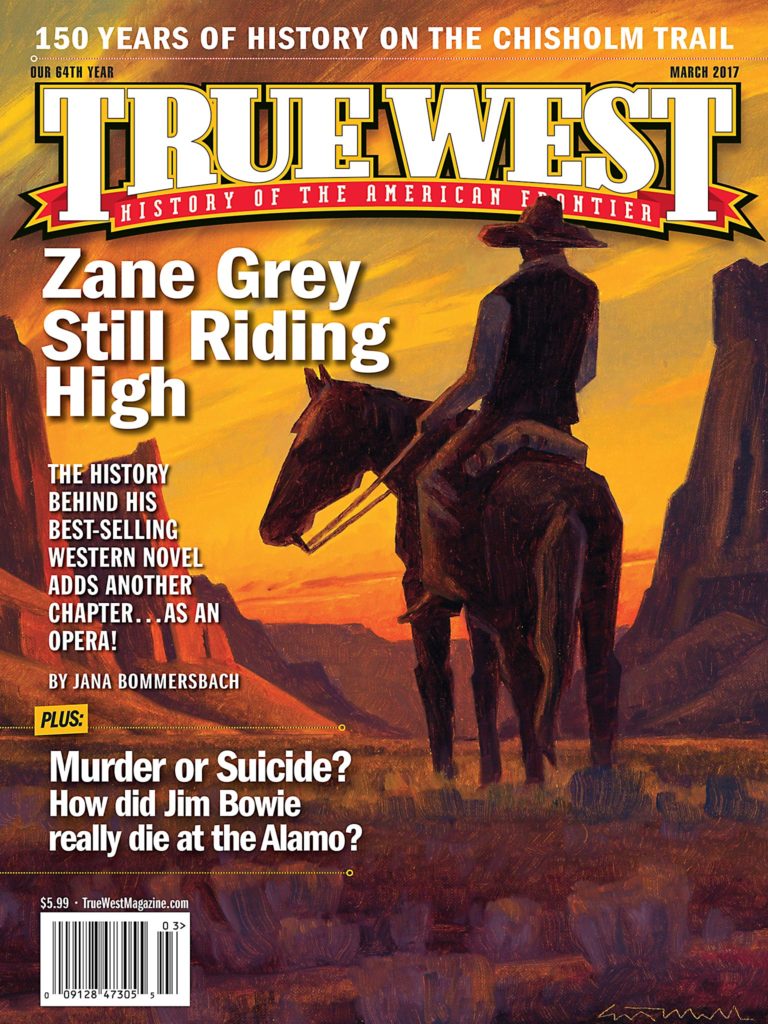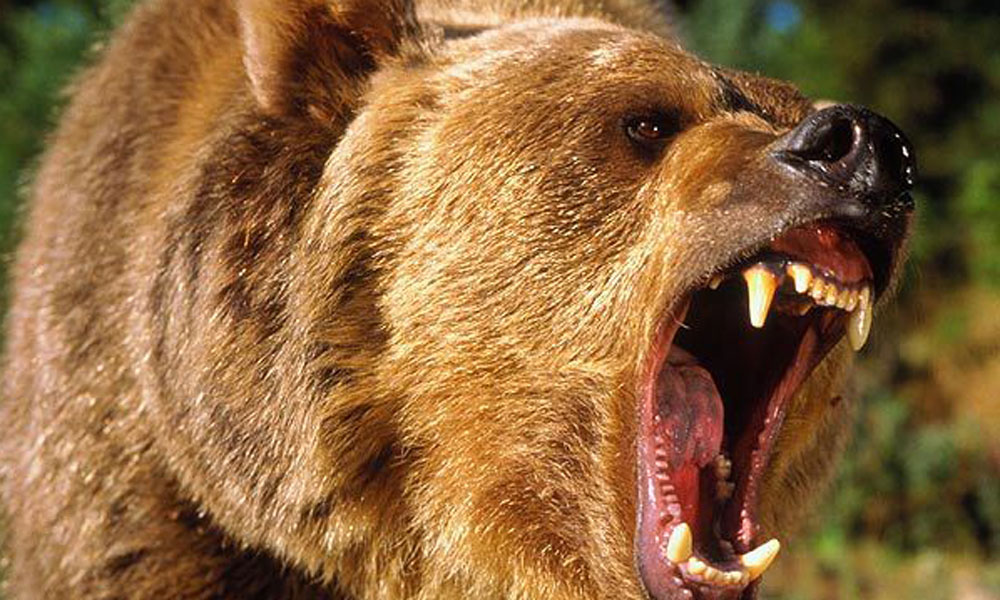
A grizzly bear was a mighty beast and its scientific name is well-deserved, Ursus Horribilis. They have been worshiped by the western Indians for centuries. The adult male weighs 800 lbs. and they stand tall, 8 to 9 feet, can run fast as a horse and one swipe with their raking claws can cut clear to the bone. They roamed the Rocky Mountains in such numbers that one mountain man counted 200 in one day.
They had no fear of man. A hunter might think he’s tracking one only to find the grizzly had circled around behind and was now stalking the hunter. Don’t try to outrun one as a griz can cover fifty yards in three seconds at a speed of forty miles per hour.
Of all the tales of survival in the western wilderness, few can match that told by mountain man Hugh Glass. Alone, unarmed, and crippled by a grizzly bear. Glass managed to crawl over more than 100 miles of hostile wilderness before reaching safety.
His colorful career up to then included being a seaman, then a pirate with Jean Lafite, a Pawnee Indian and in 1823 he answered Captain Andrew Henry’s call for a few enterprising young men to join him in an expedition up the Missouri River. Among his colleagues were a group of men destined to become legends, including Jim Bridger, Antoine Leroux, Jedediah Smith, Bill Sublette and Tom Fitzpatrick.
Glass was badly wounded in the famous battle with Arikara Indians in 1823 but quickly recovered in time to join Captain Henry’s overland trek to the Yellowstone country.
They were headed up the Yellowstone River in the summer of 1823 when his adventure began. Glass had gone off alone in search of game when he was attacked by a grizzly. When his companions found him he seemed hopelessly mangled.
The men lingered for a few days, hoping he would show signs of recovery or die; They were in hostile Indian country and heavily outnumbered. If they were discovered, all would perish.
When no change in Hugh’s condition took place, they decided to move on. The leader of the party offered a reward to anyone who would remain with Glass until he died so he could have a proper burial.
Two men, one of them a very young Jim Bridger, the other a man named John Fitzgerald, volunteered to stay.
But Hugh stubbornly refused to die and after a few days Fitzgerald and Bridger had a conference and decided that since he was good as dead, they took his possessions, including his weapons, lest they fall into the hands of the Indians, and hastened after the party. They overlooked one thing, Hugh’s shaving razor.
When they caught up with Captain Henry, they reported Hugh’s death and burial.
A day or so after being abandoned, Hugh opened his eyes. In a blind, instinctive manner he rolled down into the spring of water by which he lay, drank, and afterward filled his stomach with chokecherries and buffalo berries growing nearby. Then he slept.
When he awoke the second time his mind had cleared and he cursed his companions who’d left him without any weapons to feed or protect himself.
He made up his mind to head for Fort Kiowa, in the Dakotas, more than a hundred miles away.
The brawl with the grizzly had injured his back so Hugh had to crawl, at an average rate of two miles from sunup to sundown.
Craving meat to satisfy his hunger, he came upon a pack of wolves feasting on a buffalo calf. They snarled at his approach but backed off when he snarled back. He gorged himself on buffalo meat, packed what he could carry and went on his way.
When he crawled into Fort Kiowa after his long ordeal, the Indian traders took him and in six weeks his health was restored and he went in search of the two men who left him to die in the wilderness.
He found Bridger first but forgave the future legend on account of his youth. Glass wanted to cut the ears off the older man Fitzgerald, then slice him up into little pieces but Fitzgerald had joined the Army and placed himself beyond Hugh’s vengeance.
Hugh Glass had many a narrow escape at the hands of the Indians over the next few years
Hugh had been wounded numerous times in battle and had cheated death often but his luck finally run out in 1833. He and two partners were killed by Arikara warriors while crossing the frozen Yellowstone River.


